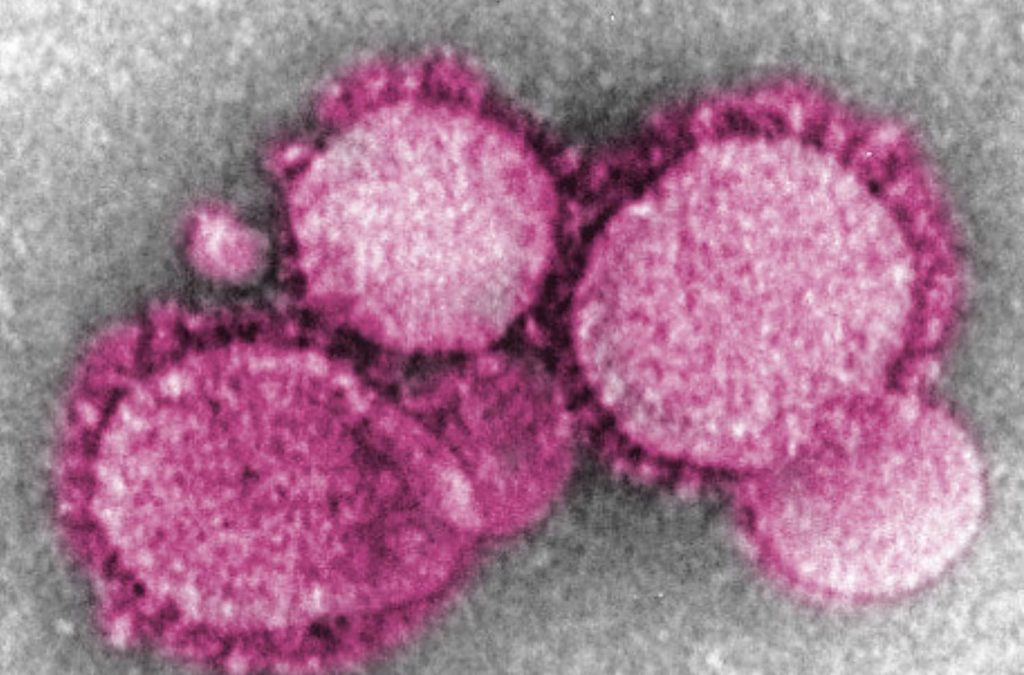Coronavirus poses minimal threat to students, Health Center says
4 min read
More than 60,000 people have been infected with the novel strand of coronavirus. (Creative Commons)
by KAITLYN O’GORMAN
Staff Writer
The World Health Organization (WHO) has labeled a novel coronavirus COVID-19, with high pubic health threats on a global level. The death toll worldwide as of Feb. 12 is over 1,300 and more than 60,000 people have been infected worldwide. As of now, this risk is dependent on exposure. Healthcare workers that are actively caring for COVID-19 patients have an increased risk of contracting the virus.
Symptoms to look out for are respiratory symptoms like fever, cough and shortness of breath. Currently, the Center for Disease Control and Prevention (CDC) believes that these symptoms can appear anywhere between two and 14 days after exposure.
As there is still no vaccine to prevent the infection, the best way to protect oneself is to avoid exposure. The most recommended preventative action is to wash hands thoroughly, avoid contact with anyone who is sick and avoid touching your eyes, nose and mouth.
On Jan. 31, students received an email from Kathleen Flanagan, the manager of student affairs, reassuring students that there have only been 6 confirmed cases in the U.S. and no formal diagnoses in Virginia. As of Feb. 10, the number of confirmed cases in the U.S. has increased to 12, according to the CDC. States with confirmed cases are Arizona, California, Illinois, Massachusetts, Washington and Wisconsin.
Even after being reassured that seasonal influenza and respiratory disease activity holds a more prevalent concern at UMW, students are still actively monitoring the infection’s progress.
Carly Hughes, a junior English and special education major has witnessed the fear that can spread when one believes they are in danger of coming in contact with the virus.
“I’m on the track team, and we were at George Mason the same weekend they thought this [George Mason student] had the coronavirus. She ended up not having it, but I remember hearing about all that and I keep up with the news so it is on my radar but it isn’t something that’s really a worry to me,” said Hughes.
Molly Rist, a senior English major is planning on taking several precautions to protect herself. “I’m concerned but I know that it isn’t as big of a deal here in Virginia as it is in other places. I’m keeping an eye out for whether or not there are cases here,” said Rist. “I’m still washing my hands. I’m going to be on a plane this spring break and I’m going to get a face mask, but that’s really the only thing that I’m changing.”
Director of the Student Health Center, Dr. Nancy Wang, advises that there is currently no cause for alarm at UMW. “It is enough just to be aware. There is no need for UMW students to be concerned. For the general American public, who are unlikely to be exposed to this virus, the immediate health risk from COVID-19 is again considered low at this time,” said Wang. “UMW does have an Emergency Management Plan for infectious disease should something like measles, norovirus, meningitis or pandemic influenza is to occur.”
Other students feel that the dangers of the coronavirus have been overstated. “I’ve never felt concerned about coronavirus because it never seemed overly dangerous or likely to contract,” said junior Mary-Gayden Morrill. “If I was going to have a concern about coronavirus, it would be how little is known about it. The media seems to be giving it a lot of power, but no answers are really given.”
In comparison to the last decade’s pandemics, such as the 2015 Ebola outbreak, with a death rate of 39.6 percent, the COVID-19 has a projected death rate of 2 percent.
“I think Ebola is a really scary disease, whereas I don’t really know what the coronavirus does to you, I just know that people are dying,” said Hughs. “I also think that a lot of those viruses are affecting people that weren’t vaccinated or weren’t healthy anyway. I think that the coronavirus is sort of on par with [Ebola] but I don’t think that its symptoms are as scary as Ebola. I think that this is just scary because [diseases] like this do wipe out people.”
Since the virus has not projected to be as severe as previous pandemics, students have noticed a lack of alarm.
“I think that both the Ebola and Swine flu outbreaks were far more severe and tragic than coronavirus… People seem to have almost a dismissive attitude towards coronavirus, at least in our area,” said Morrill. “Apart from all of the flashy graphics on the news and social media, the only tangible warning or notice of the coronavirus was at an urgent care center in Fredericksburg… There was a single sign up that said “Coronavirus-No Panic!” with a graphic of a thumbs up. I didn’t know if it was supposed to be more of a precaution or if it was a reassuring gesture.”
While there’s nothing to panic about in the U.S. just yet, students have been advised to be proactively monitoring the evolution of COVID-19 as well as their own personal health. If respiratory illness or flu symptoms arise, please seek medical attention or make an appointment with the UMW Health Center by calling 540-654-1040.


